
Face to Face is the fourth studio album by the English rock band the Kinks, released on 28 October 1966. The album marked a shift from the hard-driving style of beat music that had catapulted the group to international acclaim in 1964, instead drawing heavily from baroque pop and music hall. It is their first album consisting entirely of Ray Davies compositions, and has also been regarded by critics as one of rock's first concept albums. Davies' blossoming songwriting style became increasingly observational and satirical, commenting on English culture, social class and the music industry.
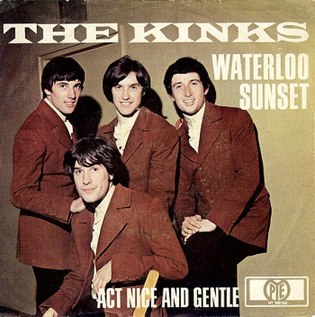
"Waterloo Sunset" is a song by English rock band the Kinks. It was released as a single on 5 May 1967 and featured on the album Something Else by the Kinks later that year. Written and produced by Kinks frontman Ray Davies, "Waterloo Sunset" is one of the band's best-known and most acclaimed songs, and was ranked number 14 on the 2021 edition of Rolling Stone's 500 Greatest Songs of All Time list. It was also their first single that was available in true stereo.

Muswell Hillbillies is the tenth studio album by the English rock group the Kinks. Released in November 1971, it was the band's first album for RCA Records. The album is named after the Muswell Hill area of North London, where band leader Ray Davies and guitarist Dave Davies grew up and the band formed in the early 1960s.

Lola Versus Powerman and the Moneygoround, Part One, commonly abbreviated to Lola Versus Powerman, or simply Lola, is the eighth studio album by the English rock band the Kinks, released on 27 November 1970. A concept album, it is a satirical appraisal of the music industry, including song publishers, unions, the press, accountants, business managers, and life on the road. It marked the group's expansion to a five-piece with the addition of keyboardist John Gosling.
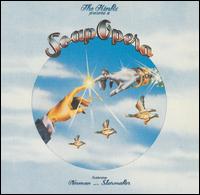
Soap Opera or The Kinks Present a Soap Opera is a 1975 concept album by the Kinks. It is the fourteenth studio album by the Kinks.
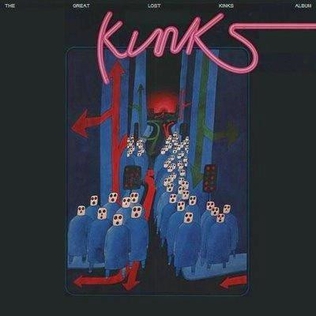
The Great Lost Kinks Album is a compilation album by the English rock band the Kinks. Released in the United States in January 1973, it features material recorded by the group between 1966 and 1970 that had mostly gone unreleased. The compilation served to satisfy Reprise Records after executives determined that the Kinks contractually owed them one more album, despite the band's departure from the label in 1971.
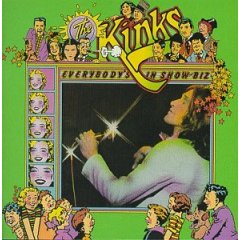
Everybody's in Show-Biz is the eleventh studio album released by the English rock group the Kinks, released in 1972. A double album, the first disc features studio recordings, while the second disc documents a two-night Carnegie Hall stand.
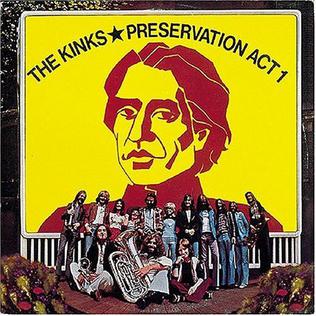
Preservation Act 1 is a concept album and the 12th studio album by the English rock group the Kinks, released 16 November 1973 by RCA Records.

Low Budget is the eighteenth studio album by English rock group the Kinks, released in 1979. It was their first to feature bassist Jim Rodford who would remain with the group until their disbandment in 1996. Following the minor success of their 1978 album Misfits, the band recorded the majority of the album in New York rather than London. Unlike the more nostalgic themes of many Kinks albums prior to Low Budget, many of the album's songs allude to contemporaneous events. Musically, the album is a continuation of the band's "arena rock" phase, resulting in a more rock-based sound and more modern production techniques.

Misfits is the seventeenth studio album by the English rock band the Kinks, released in 1978. Following the minor success of Sleepwalker in the United States, Misfits featured a more rock-oriented style than many other Kinks records of the 1970s. It was their last album to feature pianist John Gosling and the only one to feature bassist Andy Pyle as a member, both of whom quit the band following internal conflicts. Despite this, the album made the Top 40 in America. The album also contained the minor hit single "A Rock 'n' Roll Fantasy", as well as less successful releases "Live Life" and "Black Messiah".

State of Confusion is the twentieth studio album by the English rock group, the Kinks, released in 1983. The record features the single "Come Dancing", which hit #6 on the Billboard Hot 100 and was one of the band's biggest hit singles in the United States, equaling the 1965 peak of "Tired of Waiting for You". The album itself was a major success, peaking at #12 on the Billboard album charts. The album was certified gold in Canada by August, 1983. It was the last Kinks album on which drummer Mick Avory appeared as a full member of the band.
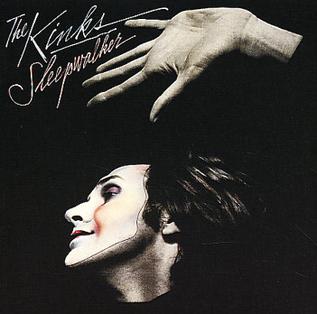
Sleepwalker is the sixteenth studio album by the English rock group, the Kinks, released in 1977. It marked a return to straight-ahead, self-contained rock songs after several years of concept albums. It is the first album in what critics usually call the "arena rock" phase of the group, in which more commercial and mainstream production techniques would be employed. The album also marks the last appearance of bassist John Dalton, who left the band during the recording sessions. Dalton plays bass on all songs on the album save for "Mr. Big Man". The lineup of the Kinks would be trimmed down significantly in 1977 following the album's release, as the brass section and backup singers were removed and the band returned to a standard rock band outfit.

Schoolboys in Disgrace, or The Kinks Present Schoolboys in Disgrace, is a 1975 concept album by the Kinks. Their 15th studio album, it was considered by critics to be the last album in what they dubbed the group's "theatrical" period, and their final release for RCA Records. The album is rooted in 1950s rock and roll, and also includes elements of hard rock, ‘50s pop and doo-wop, and arena rock.
"Wicked Annabella" is a song by the English rock band the Kinks from their 1968 album, The Kinks Are the Village Green Preservation Society (1968). Written by Ray Davies, it was recorded by the Kinks in July 1968. The song is Dave Davies's only lead vocal contribution on the album. It is one of several character studies on Village Green, recounting the wicked deeds of the local witch as a warning to children. Employing an eerie tone, its lyrics are darker than the rest of the album and have been likened by commentators to a dark fairy tale.
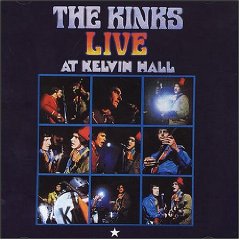
Live at Kelvin Hall is a live album by the English rock group the Kinks. It was recorded at Kelvin Hall in Glasgow, Scotland, in early 1967 and released in August 1967 in the US, and January 1968 in the UK. Live at Kelvin Hall received mixed reviews upon release, and sold poorly.

"Catch Me Now I'm Falling" is a song written by Ray Davies and first released by The Kinks as the second track on their 1979 album Low Budget. Written as a criticism of America's allies, the song depicts the fall of Captain America as a symbol of the United States' dire circumstances at the time. The song features multiple solos on different instruments as well as a riff similar to "Jumpin' Jack Flash".

"Starstruck" is a song by the English rock band the Kinks from their 1968 album The Kinks Are the Village Green Preservation Society. Written and sung by Ray Davies, the song was recorded in July 1968. The song was issued as the album's lead single in continental Europe in November 1968 and in the United States in January 1969. The European release was accompanied by a promo film shot in Waterlow Park, Highgate. The song failed to chart anywhere besides the Netherlands, where it reached No. 13 on the Veronica Top 40 and No. 9 on the Hilversum 3 Top 30.

"Preservation" is a non-album single written by Ray Davies and performed by The Kinks in 1974. Although it was related to the two Preservation albums lyrically, it did not appear on either album until it was added to the CD reissue of Preservation Act 1.
"Last of the Steam-Powered Trains" is a song by the English rock band the Kinks from their 1968 album The Kinks Are the Village Green Preservation Society. Written and sung by Ray Davies, the song was recorded in October 1968 and was among the final tracks completed for the album. Variously described as a blues, R&B or rock number, the song describes a steam train that has outlived its usefulness and has since moved to a museum.
"Phenomenal Cat" is a song by the English rock band the Kinks from their sixth studio album, The Kinks Are the Village Green Preservation Society (1968). Written and produced by Ray Davies, the song was recorded sometime between late 1967 and May 1968. The song features a Mellotron which duplicates the sound of a flute. It is one of several character studies on Village Green, recounting the story of a flying cat who travels the world, discovers "the secret of life" and spends the rest of his life eating. Commentators have sometimes likened the song to Victorian fairy tales and have often described it as an example of psychedelia.

















